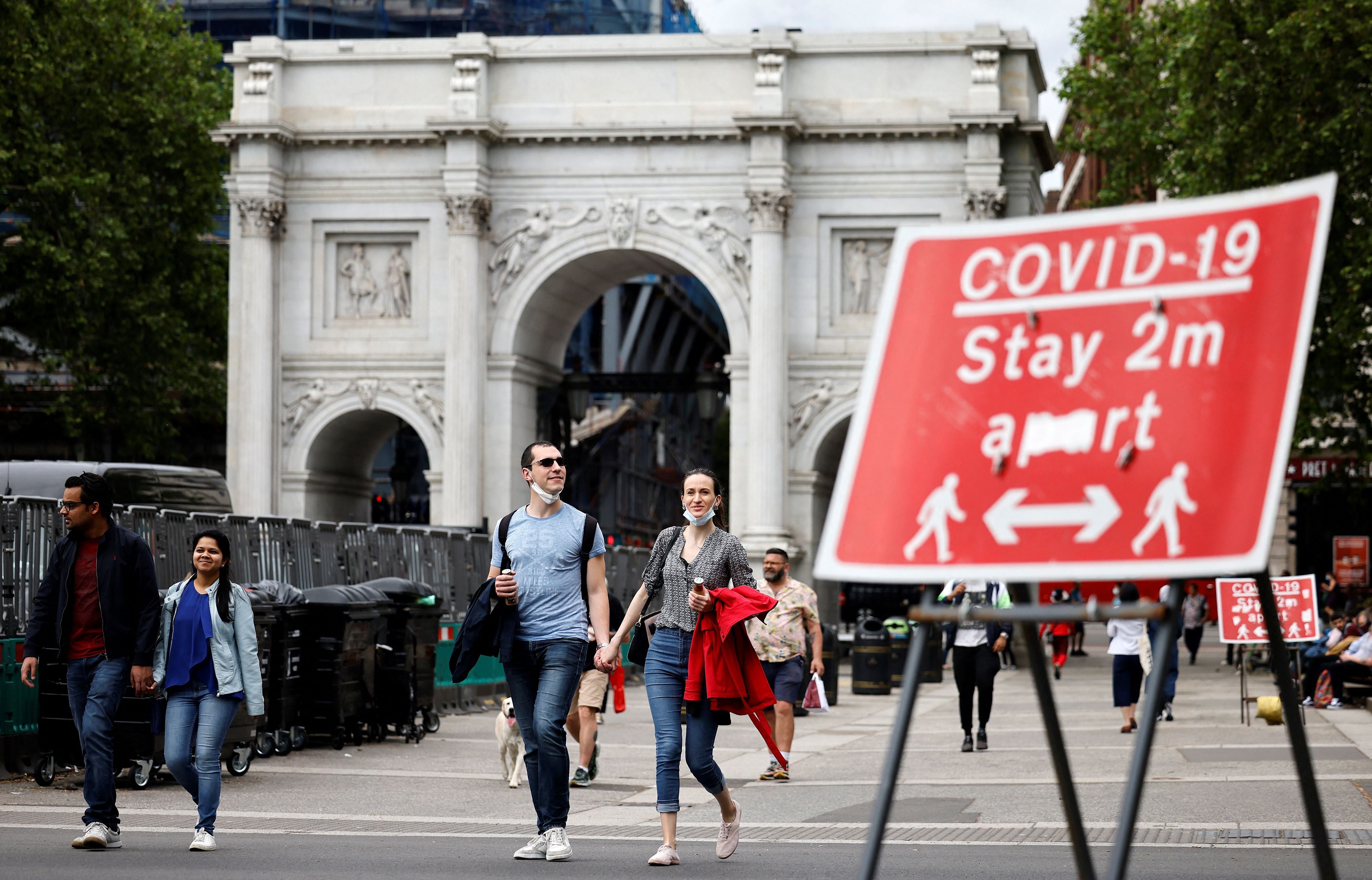Analysis: Hospital data is promising but ending lockdown is still a risk
Health correspondent Shaun Lintern believes NHS data is encouraging but Covid is adept at exploiting gaps in protection


The latest data coming out of the NHS is encouraging. The numbers of coronavirus patients in hospital, although rising, are not yet surging dangerously.
It’s more than three weeks since the Delta variant, first seen in India, caused widespread concern when it emerged in parts of Bolton and the northwest. Since then, it has become the dominant variant of Covid-19 in the UK.
The Delta variant is 40 per cent more transmissible than the Alpha variant that caused the last wave of infections in the UK. There is no doubt that if the Delta variant had been here last year, the UK would be in a very dangerous situation.
Yet in Bolton, the number of coronavirus patients has been steadily falling over the past week – having apparently peaked at 49 patients on 27 May, it’s down to 38 on Monday. The hospital is still admitting new patients, but internal NHS data also shows it is successfully discharging patients too.
Similarly at the Royal Blackburn Hospital, numbers have grown slowly to 30 over the past week but despite the surge in cases in recent weeks, hospitalisations have not followed the trajectory we might have expected.
The reason of course is the vaccine rollout. Speaking in the House of Commons on Monday, Matt Hancock was clear he believed the vaccines had broken the link between infection and hospital admissions.
Of 12,383 infections of the Delta variant, just 126 people had been admitted to hospital and only three patients had had both doses of vaccine.
Mr Hancock said this was proof the vaccines were working. While no decision has yet been made on relaxing the last of the lockdown rules by 21 June, Downing Street continues to say there is nothing in the data that would delay that from happening.
At a population level they may well be right. But there are a number of areas where attention also needs to be paid. Firstly, the link to hospitalisation and death may be broken but what about the risks of long Covid to the working age young who are now amongst the groups seeing the highest level of infections which are up over 50 per cent in the last seven days alone.
The vaccination programme is being extended to people aged 25 and over from Tuesday 8 June while second doses are also being rolled out as fast as possible.
Here, too, the more granular data is worrying. The Office for National Statistics said on Monday that significantly fewer minority ethnic people over the age of 70 were coming forwards for their second doses. Among Muslim groups, the rate was just 85 per cent… leaving 15 per cent vulnerable to the Delta variant.
Ministers may be confident to end lockdown completely on 21 June, but they should be equally targeting efforts to tackle these weaknesses in our Covid defence. If we’ve learned anything in the past year, it is that Covid-19 will find the gaps and exploit them mercilessly.
Hundreds of thousands of people over the age of 50 have not been vaccinated – possibly as many as 700,000 – and the NHS is desperately trying to recover backlog surgery cases while coping with a spike in demand on A&Es and GPs in recent weeks. There is still scope for a dangerous surge in admissions if we allow the virus to spread. Ending lockdown is still a risky gamble to take.
Join our commenting forum
Join thought-provoking conversations, follow other Independent readers and see their replies
Comments
Bookmark popover
Removed from bookmarks